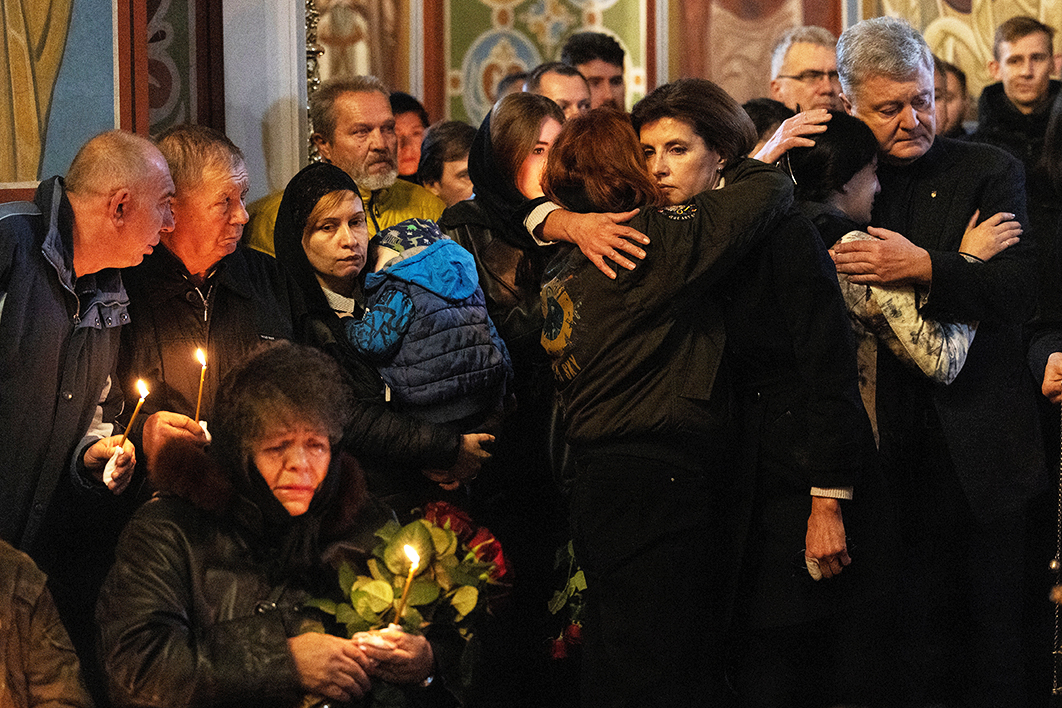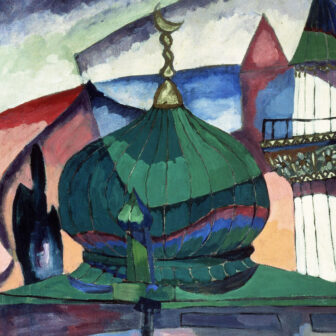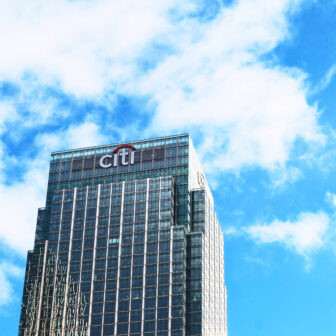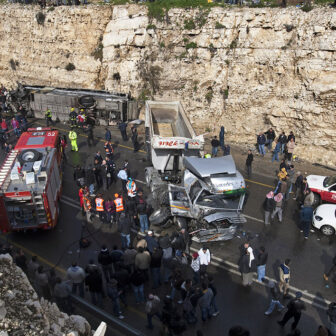“Whenever I read a book about the current war,” writes Andrey Kurkov in his preface to Olesya Khromeychuk’s heartbreaking account of the combat death of her brother, “I get the strange impression that this war is over. These books transport the reader into the past, even if it is just yesterday.”
Kurkov is right. Reading books about this war can have a soothing effect. Only once we look up from the pages that have captured our imagination are we propelled back to the awful knowledge that Russia’s war against Ukraine continues. Blood keeps flowing. People keep getting injured and killed. A country is being destroyed. There seems no end in sight.
Looking at the pages in front of them, historians have another experience as well. Trained to read for argument and to classify books into schools of thought, they begin to think about the books dealing with this war as part of its “historiography” — a corpus of texts engaged in a discussion with each other attempting to understand the past and its meaning for the present.
To see a historiography forming while the event it describes is still unfolding is unusual. Normally decades, even centuries, pass before historical schools solidify around a particular event. In this respect, the literature on Russia’s war against Ukraine resembles the historiography of Stalinism in its formative stages, but its historiographical schools are developing much faster in our present, pressurised environment.
Somewhat schematically, we can distinguish five schools of thought about the origins of this war. One group of writers sees the West at fault, and particularly NATO. Another blames Russia and the Russians, opponents of peace and democracy. A third group sees Russia’s imperialist past at the core of a war that expresses the legacy of a lost empire and the failure to overcome its culture. A fourth group, the intentionalists, focus on Vladimir Putin and his perhaps irrational, or at least idiosyncratic, motivation for waging war. A final group sees the war as a struggle between dictatorship and democracy reflected in Putin’s attempt to quash any potential challenge to his rule, at home or abroad. The war, on this reading, is part of Putin’s “preventive counter-revolution.”
There are, of course, combinations of these viewpoints. Blaming NATO can go together with a notion of Russia’s ongoing imperialism: given the latter, the argument goes, NATO should have abstained even more emphatically from expanding into Russia’s supposed backyard. Russia’s imperialism and continued quest for a great power status can be linked, in turn, to its hostility to Ukraine’s quest for democracy. Intentionalists, too, can see Putin as drawing on a wider Russian culture of imperialism, which can go hand in glove with a quest for dictatorship and therefore preventive counter-revolution.
Perhaps the most well-defined position in the debate on the war’s origins is the first: blaming NATO for provoking the conflict by expanding into Russia’s “sphere of influence.” This path has been taken most prominently by international relations scholar John Mearsheimer. As critics of this view have pointed out, it has its history backwards. It was not when NATO enlarged into Eastern Europe that Russia became aggressive but when it showed weakness — by failing to agree on a response to the accession hopes of Georgia and Ukraine at the Bucharest Summit in 2008, for example. Moreover, it is difficult to see Putin’s aggression, “riddled” as it is with “irrationalities,” as some kind of logical response to a putative Western threat.
NATO-blaming has recently lost some of its dominance over public discourse. But it continues to be popular on the far left, sometimes amended to an opposition to both Russian and NATO imperialism. Beyond the extremes lingers the view that, whatever bad things happen in the world, “the West” must be to blame.
Historian Philipp Ther is clearly affected by such sensibilities. He feels “comfortable” in the company of “leftists,” he writes in the introduction to his latest book, and he feels that “the West” (whatever that might be) has lost its way. The multiple crises we encounter today, including the war against Ukraine, are part of a “wrong turn” in economic policy after 1989–91. “The West lost the peace” after the end of the cold war, he says, because it became self-satisfied and embraced unfettered capitalism (or “neoliberalism,” defined as the conglomerate of “liberalisation, deregulation, privatisation, the reduction of state influence on the economy, and global financial capitalism”).
NATO expansion, then, is not at the centre of Ther’s argument in How the West Lost the Peace: The Great Transformation Since the Cold War. A social historian, Ther is much more interested in political economy than international relations. He flags in his introduction that he feels uneasy about NATO expansion, and at one point suggests Russia should have joined the alliance. But he hastens to add that his critique is “absolutely not meant to relativise Russia’s attack on Ukraine.” The latter “deserves the full support of the West and the entire world — otherwise Russia’s pursuit of a multipolar world order with a Russian sphere of influence in Eastern Europe will instead lead to maximum global disorder.”
Elsewhere in his book, Ther declares Russia’s enduring “imperial legacy” to be the core cause of the war. The early 1990s might have been a moment to cast off the legacy, but it passed, first because of Boris Yeltsin’s shelling of a recalcitrant (and imperialist) parliament in 1993 and then because of the rouble crisis in 1998, “when most of the Russian middle class sank into poverty again.” The latter is something of an overstatement, as a middle class continued to exist thereafter, but Ther’s overall point is well taken: “Neither of these traumatic moments had anything to do with the expansion of NATO or the EU; they were domestic problems first and foremost.”
Rather than an outcome of international relations, Russia’s trials and tribulations were part of the global malaise Ther is exploring. His great bugbear is the failed prophet of the “end of history,” Francis Fukuyama, whom he sees as the chief ideologist of Western triumphalism; his intellectual hero is the sociologist Karl Polanyi, analyst of the “great transformation” of the long nineteenth century.
Like Polanyi in the interwar years, Ther argues, we find ourselves at the tail end of another transformative period: the one that ran from 1989 to 2022. This transformation had two aspects — post-Soviet transformation in the former Soviet empire and “late-capitalist transformation in the West” — and they were held together by a shared framework of “neoliberal globalisation.”
Far from being the end of history, this period was one of profound economic, social and political upheaval, with winners and losers dotted around the globe, both between countries and within them. The claim that unfettered capitalism would somehow lift all the boats, making us all more prosperous, happy and democratic, turned out to be a pipedream at best and ideological obfuscation at worst.
Instead came the global financial crisis, followed by the annus horribilis of 2016, with Donald Trump’s victory in the United States and the Brexiteers’ in Britain. Then the “one-two punch of the pandemic and the biggest war in Europe since 1945… brought to an end the era for which historians have not yet found a name.” In line with Polanyi, Ther proposes calling the period from 1989 to 2022 “the age of transformation.”
Transformation to what? We don’t yet know, but it might not be good. Overall, Ther is quite pessimistic, but he does hope that his exploration of the history of our present will help open up “new opportunities for a progressive politics and society,” a political thrust that fits in well with other recent attempts to reconstruct the social democratic project for the twenty-first century.
To Ther, this is an existential quest. Like the unfettered capitalism of the nineteenth century, he fears that the new age of transformation might lead to some kind of fascism. The pendulum, to use his metaphor, having swung all the way towards a neoliberal abandonment of state protection, is now swinging back the other way. But Ther’s pendulum, in a hard-to-visualise twist, can swing in two ways: “left towards democratic socialism, or right towards fascism.”
Does any of this explain the war against Ukraine? Not really. Ther struggles to make Russia and Ukraine fit his explanatory scheme. True, the economic crisis triggered by Gorbachev’s reforms and deepened by the breakdown of the Soviet Union “plunged much of Russia’s population into destitution and misery,” which is never a good foundation for a democratic polity. But the same was true for Ukraine, which became democratic. And while Ukraine’s economy remained sluggish, Russia’s has grown by leaps and bounds since Putin came to power.
Neoliberalism, then, is of little use as a scapegoat for Russia’s aggression. Instead, Ther evokes a combination of the preventive counter-revolution argument and the anti-imperialist paradigm. Putin’s goal, he argues, is “to rewrite the end of history — with the creation of a new Russian empire.” The “larger dimensions of the conflict” also include the confrontation between “an authoritarian system” (Russia) that has evolved into a “hard dictatorship since Putin’s second term,” on the one side, and a country (Ukraine) that “has continually moved in the direction of liberal democracy ever since the Orange Revolution, and especially since 2014.”
Ukraine is far more democratic than Hungary, an EU member. Its governments have repeatedly transitioned smoothly and peacefully after elections, “something that unfortunately cannot be said for the USA since the storming of the Capitol.” Putin’s war on Ukraine is “also a war on democracy,” Ther writes, a “declaration of war against the EU and a free Europe.”
By evoking imperialism, a global transformation of capitalism, and a systemic confrontation between dictatorship and democracy, Ther avoids the position of authors who find the origins of this war in Russia’s national character, its history or its culture. I have argued elsewhere against such views as ahistoric and simplistic. Mikhail Zygar’s recent magnum opus War and Punishment: The Story of Russian Oppression and Ukrainian Resistance, can serve as evidence of some of their shortcomings: it is the book of a Russian democrat, a Russian anti-imperialist and a Russian enemy of this war. Were the arguments about Russia’s national character as militaristic, imperialist and anti-democratic correct, he should not exist. And yet he wrote a book — a long and eloquent one at that.
Zygar is a Russian intellectual, and he knows it. And he’s an anti-imperialist. His book is framed as a long letter to his Ukrainian friend Nadia, at whose house in Bucha — the scene of one of this war’s massacres — he wrote much of his earlier book, All the Kremlin’s Men. “Nadia no longer speaks to me,” he writes in distress. “Because I am Russian, she considers me an ‘imperialist.’” He hopes his book will change her mind, and the minds of his compatriots: “Nadia, I am not an imperialist, and I am writing this book so that others will not be either.”
War and Punishment is made up of two, very different, parts. In fact, it is two books pressed into one volume. The first is a series of historical essays on major moments in Ukrainian–Russian relations that have been turned into myths in both Russian and Ukrainian historiography. They include Hetman Bohdan Khmelnytsky’s ill-fated alliance with Muscovy against Poland in 1654, which Russian historians have used to claim that Ukraine voluntarily subjugated itself under Moscow’s tsars; Ivan Mazepa’s alliance with Sweden against Peter the Great in 1708, which was declared a “betrayal” by Russian imperialists; Catherine the Great’s destruction of the remnants of Cossack Freedom; the life and work of Taras Shevchenko, Ukraine’s national poet of the nineteenth century; the Ukrainian revolution and Ukraine’s independent state at the end of the first world war; the Great Famine, or Holodomor, of the early 1930s; and nationalist resistance against German and Soviet occupation during the second world war.
Zygar provides a fresh and readable account of the historical background of each of these episodes and how they persist as anti-Ukrainian myths in Russian historiography.
Like anti-Russian authors, then, Zygar is well aware of the imperialist mainstream of Russian culture. His book is an attempt both to condemn it and to reconstruct, or strengthen, its anti-imperialist counter-current. Like anti-fascist German intellectuals after 1933, and for similar reasons, he is scathing about the culture in which he grew up:
Many Russian writers and historians are complicit in facilitating this war. It is their words and thoughts over the past 350 years that sowed the seeds of Russian fascism and allowed it to flourish, although many would be horrified today to see the fruits of their labour. We failed to spot just how deadly the very idea of Russia as a “great empire” was… We overlooked the fact that, for many centuries, “great Russian culture” belittled other countries and peoples, suppressed and destroyed them.
But his reaction is not to treat Russia as some kind of historical anomaly but to change what it means to be a Russian. “Russia as an empire has been consigned to the past, as a direct and irreversible consequence of the war,” he writes. What remains, however, is imperialism, a mindset, an emotional state, that needs to change, not just because of what it does to others, but also because of how it deforms Russia and the Russians:
Imperial history is our disease; it’s inherently addictive. And the withdrawal symptoms will hurt. But this is inevitable. We have to return to reality and realise what we’ve done.
We have to learn this lesson. To stop believing in our own uniqueness. To stop being proud of our vast territory. To stop thinking we’re special. To stop imagining ourselves as the centre of the world, its conscience, its source of spirituality. It’s all bunk.
Decolonising the Russian mind means democratising the country. Or, put the other way, democratisation can only succeed with the defeat of the imperialist mindset, which legitimises the subjugation of citizens as subjects:
We must strip the state of the right to impose its own view of the past on us. We have to roll up our sleeves and completely reinterpret our history, or rather the history of the peoples who fell victim to the empire…
Looking back, we see a horrific sight; our ancestors, indoctrinated to believe they were victors, were themselves victims. They were forced to kill, to rejoice in the killing, to take pride in the killing. And they were good at it. They were proud; they got high; they wrote beautiful poems, songs, and books glorifying blood and violence, the crunching of bones. And they forgot it was their own blood, their own bones.
This position is a radical departure from Russian liberal thought, both past and present, which often remained deeply imperialist (and racist), while espousing individual autonomy and democratic governance for Russians. At the same time it builds on anti-imperial Russian thinkers and the work of critical historians working, for example, in the now illegal organisation Memorial.
The second part of Zygar’s book is very different. It tells an integrated story, with a huge number of characters, reminiscent of the big Russian novels the title alludes to. This story begins in 1991 and ends in the present. While readers with little background in Russian and Ukrainian history will benefit greatly from the punchy and often inspired historical vignettes of the first part, they will likely get lost in the details of the second. It provides political history in its purest form: a tangled web of personalities and the relations between them; a history of power, corruption, loyalty and betrayal; and a history of powerful men and women: politicians and powerbrokers, oligarchs and gangsters, businesspeople and soldiers. In between, we learn about the unlikely rise of the comedian-turned-politician-turned-wartime-leader Volodymyr Zelenskyy.
This focus on personalities, their relations and the complex history of events over three decades — the same decades covered by Ther’s great transformation — sits somewhat uneasily with the framing of the book as an exploration of Russian imperialism. Given that many actors in Ukraine also pursued their own interests, connected to Russia as much as to Ukraine, the emergent story of oligarchic politics is much more messy than the subtitle of the book suggests: this is not just a story of Russian oppression and Ukrainian resistance.
When it comes to explaining the outbreak of the all-out war in 2022, Zygar is an intentionalist: the fourth emergent school of the history of this war. Intentionalists focus on the decision-makers and their motives. My own recent book, informed in many ways by Zygar’s earlier work, was intentionalist in this regard: while I saw, again like Zygar, Russian imperialism as one of the underlying structural causes, I also argued that the timing of the invasion becomes intelligible only when we understand that Putin, his seventieth birthday approaching, was looking for a legacy. He had spent the Covid years in splendid isolation, stewing in his own juices and reading Russian imperialist history. He wanted to get into the history books as an empire builder alongside Peter the Great, Catherine the Great, and Stalin.
Zygar tells a similar story, but he sees Putin driven less by his own historical ambition than by domestic politics. Spooked by the failed Belarusian revolution of 2020–21, the Russian president decided to remove the most prominent opposition leader, Alexei Navalny. Putin’s agents poisoned Navalny on 20 August 2020 but the attempt on his life failed. Evacuated to Germany, Navalny launched a counterattack: a YouTube video with the results of his team’s investigation into the poisoning, which was watched by some twenty million people at the time.
Navalny returned to Russia on 17 January 2021, triggering anti-regime protests and his own arrest. Two days later his team released a video about a private palace owned by Putin on the Black Sea coast. “This revelation,” writes Zygar, “strikes perhaps the most powerful blow to Putin during his entire reign. The video is watched by 120 million people, that is, almost the entire adult population of Russia.” Demonstrations have to be clubbed out of existence “Belarus-style.” The “damage to Putin’s credibility is colossal,” and he fears losing control. It is in this context, Zygar argues, that Putin’s administration is beginning to hatch new war plans: Ukraine can serve as the successful little war that saves Putin’s rule.
This is why Putin returns to history and, with the help of his former culture minister Vladimir Medinsky, writes his notorious July 2021 essay on the alleged historical unity of Russians and Ukrainians — the historical treatise that part one of Zygar’s book is trying to counter. It is a historical justification for the coming war, but not its origin. The origin is the attempt to forestall revolution at home.
Here, then, Zygar partakes of the final emerging school of thought on the origins of this war: that it is an attempt at preventive counter-revolution. As the Australian political scientist Robert Horvath has argued, Putin has long attempted to immunise his regime against the “colour revolutions” that seemed to be breaking out periodically both in Russia’s immediate vicinity and further afield.
One way to link this anti-revolutionary quest to aggression against Ukraine is to see Ukraine as a vibrant democracy at Russia’s doorstep and hence an example of what could be for the domestic opposition. The problem with this interpretation is that there was no renewed democratic revolution in Kyiv in 2022, and hence no reason to quash it.
Zygar’s interpretation is closer to Horvath’s original reading: Putin went to war not because Ukraine posed a democratic threat to his rule but because he faced a democratic threat at home. The war was a distraction: an attempt to reignite the imperialist jingoism of the Crimea annexation of 2014 that propelled Putin’s approval ratings upwards.
Two interpretive problems remain. For one, Putin didn’t order the invasion when he needed the distraction but well after the domestic crisis had passed. The 2021 protests were well and truly over by the time he published his Ukraine manifesto in the middle of that year. By early 2022, when he sent in his troops, there was no challenge to his regime.
Second, as Zygar documents himself, the war plans were hatched in secret. If the regime as a whole was under threat and the war was part of an attempt to prevent revolution, it is hardly credible that even Putin’s closest advisers were not aware of the war plans even at the eve of the invasion.
Be that as it may: Putin’s invasion on 24 February 2022 started a new historical epoch. As Ther points out, that might well be true for the globe as a whole but it is certainly true for Russia and Ukraine. At the centre of this new epoch is the war, its history being written as events unfold.
We already have military history in the more narrow sense of the term: an appreciation of unfolding events at the frontline; analyses of the technical aspects of the fighting, the evolution of tactics and weaponry; and a focus on what lessons professional soldiers can learn from this fighting. More readable for non-specialists are initial narrative accounts of this war. Among the steady stream of these, some are penned by historians but more by journalists. The latest addition is Andrew Harding’s A Small, Stubborn Town: Life, Death and Defiance in Ukraine, an account of the battle of Voznesensk in March 2022.
Harding’s slim volume is a gem. A masterpiece of journalistic storytelling, it has the qualities of a good novella. It may be the most readable book about this war published to date. Based on interviews with some dozen survivors of the battle — soldiers and civilians, men and women, Russians and Ukrainians — the book tells a tale of survival and resistance on Ukraine’s side as well as aggression and frustration on Russia’s. It also explores the sometimes unclear loyalties, and indeed identities, of both Russians and Ukrainians, and doesn’t shy away from unsentimental depictions of war crimes.
Harding’s book thus explores some of the complexities of the real history of this war without falling into relativism: it is clear that Harding’s sympathies are with the defenders rather than the aggressors and that he doesn’t find it difficult to distinguish between the two. He leaves us with the despondent nightmares of his interviewees. They are haunted, he writes, “by the notion that this conflict may never end, and by the fear that Russia’s capacity to absorb suffering and its unflinching willingness to continue inflicting it will eventually enable it to grind out some kind of victory.”
As Ther warns, such an outcome would be catastrophic. It can be avoided if Ukraine’s friends in what is left of the democratic world stay the course. The biggest threat to Ukraine’s independence today derives from phantasies that this war might be stopped if Russia were to be accommodated by reasonable diplomacy. As Zygar notes, Russia in its current configuration cannot be accommodated. Defeat, not victory, might set Russia on the path Zygar proclaims with grim optimism: “Future generations of Russians will remember with horror and shame the war that Putin unleashed. They will marvel at how archaic hubris came to dominate the minds of twenty-first-century people. And they will not tread the same path if we, their ancestors, bear the punishment today.” •
How the West Lost the Peace: The Great Transformation Since the Cold War
By Philipp Ther | Translated by Jessica Spengler | Polity Press | $36.95 | 304 pages
War and Punishment: The Story of Russian Oppression and Ukrainian Resistance
By Mikhail Zygar | Weidenfeld & Nicolson | $34.95 | 424 pages
A Small, Stubborn Town: Life, Death and Defiance in Ukraine
By Andrew Harding | Bonnier | $32.99 | 160 pages




